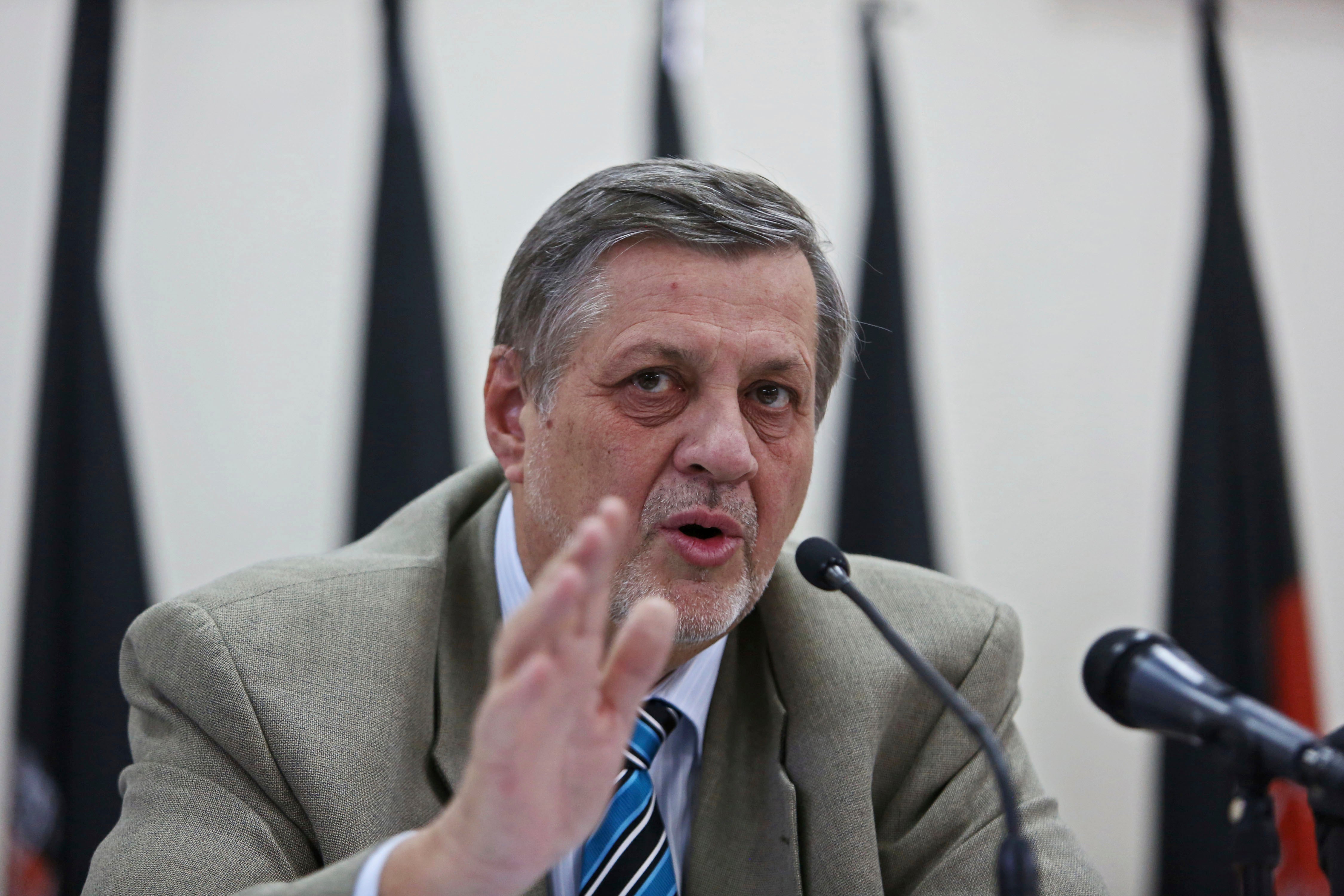UN envoy meets east-based Libya commander in push for unity
The U.N. special envoy to Libya has met with the country's east-based military commander as part of efforts to unite rival factions in the war-torn North African nation

Your support helps us to tell the story
From reproductive rights to climate change to Big Tech, The Independent is on the ground when the story is developing. Whether it's investigating the financials of Elon Musk's pro-Trump PAC or producing our latest documentary, 'The A Word', which shines a light on the American women fighting for reproductive rights, we know how important it is to parse out the facts from the messaging.
At such a critical moment in US history, we need reporters on the ground. Your donation allows us to keep sending journalists to speak to both sides of the story.
The Independent is trusted by Americans across the entire political spectrum. And unlike many other quality news outlets, we choose not to lock Americans out of our reporting and analysis with paywalls. We believe quality journalism should be available to everyone, paid for by those who can afford it.
Your support makes all the difference.The U.N. special envoy to Libya on Friday met with the country’s east-based military commander as part of efforts to unite rival factions in the war-torn North African nation ahead of elections in December.
During their meeting in the eastern city of Benghazi, U.N. envoy Jan Kubis and the Libyan commander, Khalifa Hifter, agreed on the importance for all Libyan parties to commit to and facilitate the Dec. 24 balloting, according to a statement for the U.N. mission in Libya.
The elections were laid out under a U.N.-backed political roadmap for the fractured country
Kubis' visit follows a key development earlier this month at U.N.-backed talks in Switzerland, when Libyan delegates chose a transitional government, with a prime minister and a three-member presidential council, meant to lead Libya through the elections. The election was a major step toward unifying Libya and ending one of the most intractable conflicts left behind by the Arab Spring.
For years, Libya’s influential east-based military commander, Khalifa Hifter, has been a controversial figure. In 2019, he launched an offensive to capture the capital, Tripoli a campaign that ultimately failed the following year.
Kubis and Hifter also discussed ways to expedite the implementation of a cease-fire agreement signed last year and the withdrawal of all foreign forces and mercenaries. According to the U.N. mission's statement, they also discussed the opening of a key Libyan artery — the coastal road along the Mediterranean Sea that links Tripoli, to the west, with Benghazi.
Since 2015, Libya has been divided between two rival administrations: a U.N.-backed, but weak government in Tripoli — a city largely controlled by an array of armed factions — and an eastern-based government backed Hifter. Each is backed by different foreign governments.
This is Kubis’ first visit to Libya since his appointment to the post in January. Earlier, the former Slovak foreign minister served as U.N. envoy to Lebanon. A day before meeting Hifter, Kubis held talks in Tripoli with the president of the newly elected, three-member presidential council, Mohamed Menefi, and other Libyan politicians.
Libya descended into chaos after the ouster of longtime dictator Moammar Gadhafi in 2011. It has since also become a haven for Islamic militants and armed groups that survive on looting and human trafficking.